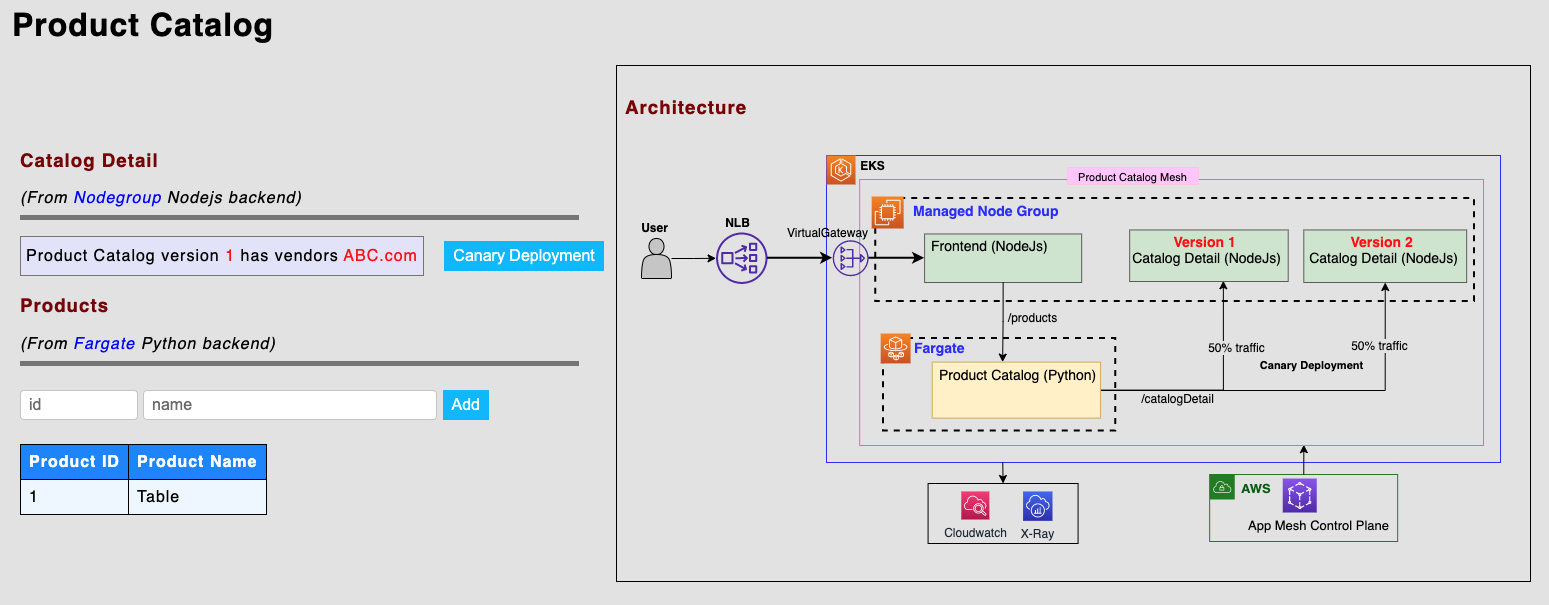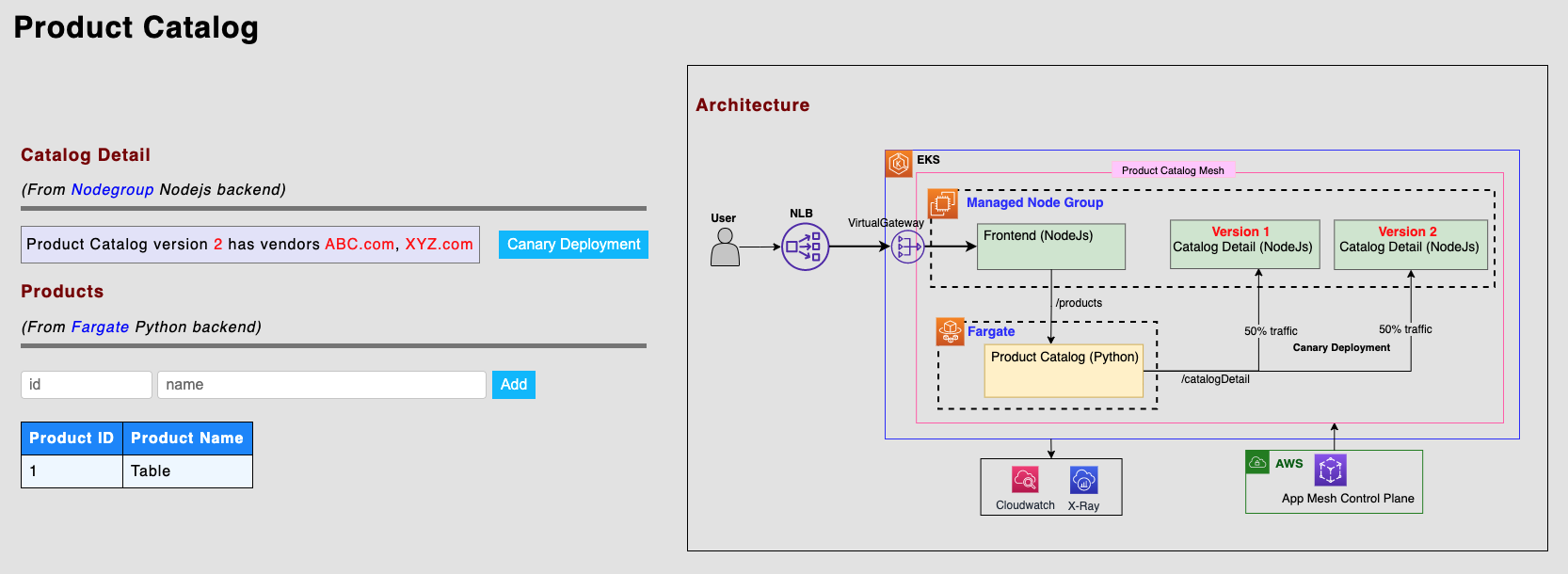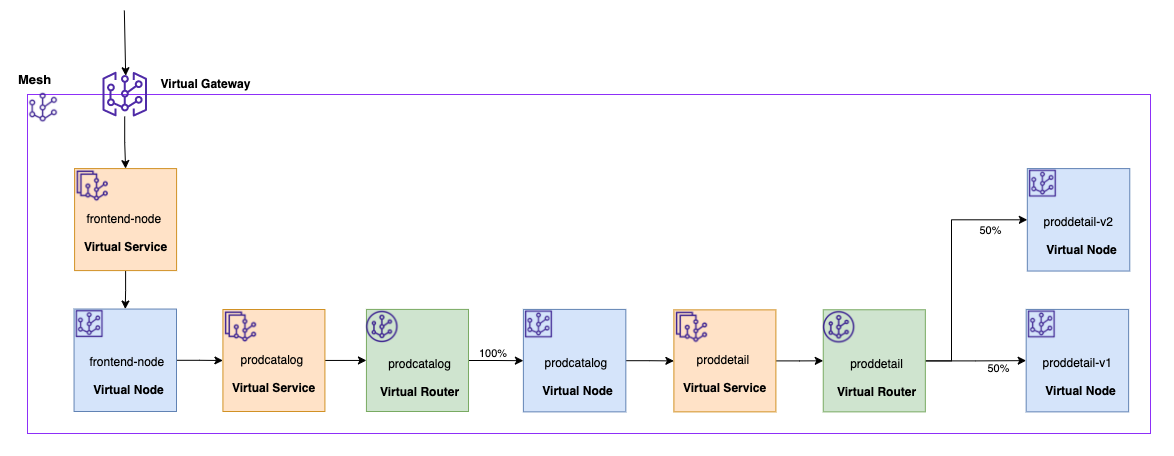Testing Canary
Get the Loadbalancer endpoint
export LB_NAME=$(kubectl get svc ingress-gw -n prodcatalog-ns -o jsonpath="{.status.loadBalancer.ingress[*].hostname}")
echo $LB_NAME
Now, back in your browser, you should see below screen which shows that Catalog Detail proddetail-v1 Version 1 is being used.

Now click on the button Canary Deployment few times as we set the route weight as 10% to proddetail V2 and 90% to proddetail V1,
you should see information coming from Product Catalog proddetail-v2 V2 after few clicks. You can see the XYZ.com vendor in the detail for proddetail V2.

Once we gain confidence in our new service version 2, and we see no error or latency issue, then we can decide to divert more traffic gradually to version V2. In below example we shift the traffic weight to 50% for both proddetail service versions in VirualRouter.

If anything were to go wrong, you can simply rollback to the known-good v1 version of the services by changing the weight in VirtualRouter to 100% to version 1. Once you’ve verified things are good with the new versions, you can shift all traffic to them and deprecate v1.
Congrats on rolling out your new feature! Now lets see the logs and traces of our Application Services to get the end to end visibility in terms of observability.